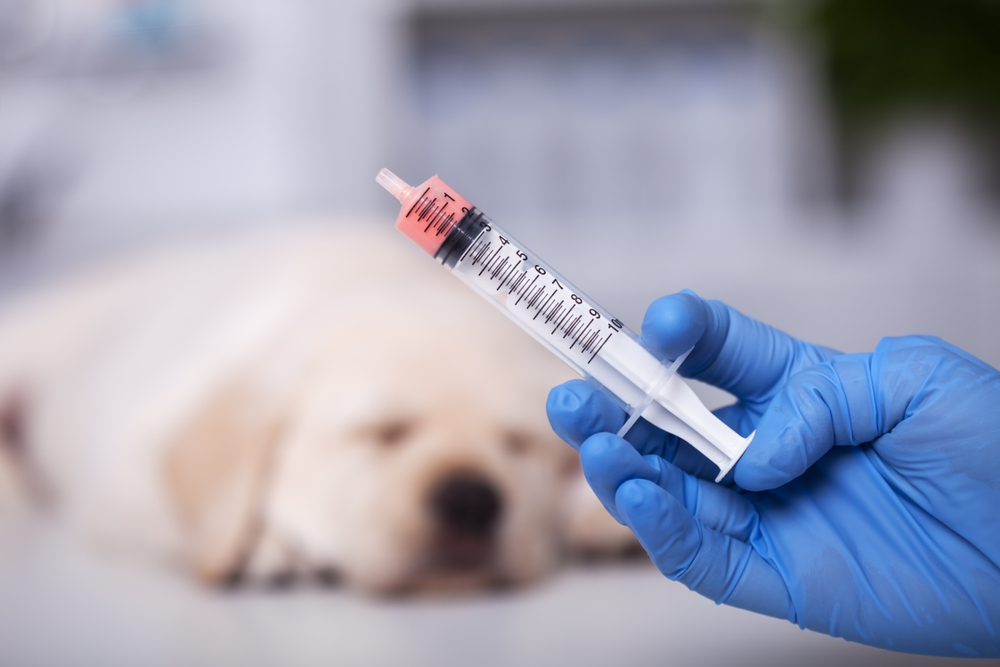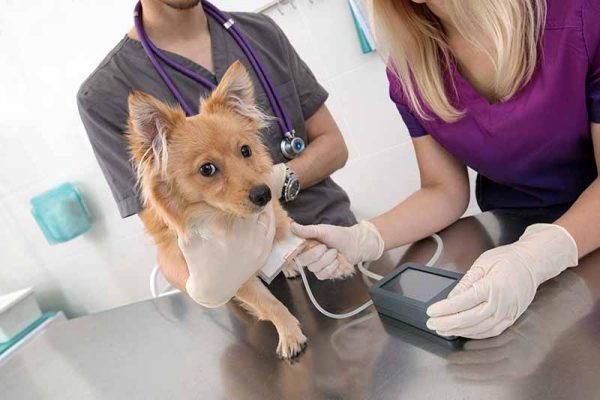In this article
View 2 More +Whenever any new medication, drug, or vaccine is released on the market, there will always be those eager to shout about the dangers. This is not to say that most, if not all, medications carry some risk of harmful side effects, but you rarely see a forum for all the patients or pet owners who experienced the expected protection with minimal or no reaction. And that’s to be expected. But the trouble with this is that the only feedback that sees the light of day is the negative stuff.
Of course, it is extremely important to be aware of the potential side effects and problems that can accompany any medication, but it should always be interpreted correctly. Are we talking about something that affects 1 in 10 individuals, or 1 in 100,000?
So, if you have read or been told not to give your dog a worming treatment because they can cause seizures, you need to know a few facts. First, dewormers could cause seizures, but it is an extremely rare event. Second, flea and tick treatments are more likely to cause seizures than dewormers, but that is still very rare. So, let’s look a bit more into this topic so you have all the facts.

How Can Dewormers Cause Seizures?
Seizures in dogs can have a number of different causes, with the most common being epilepsy, hypoglycemia (low blood sugar), brain tumors, and toxins. Adverse reactions to medications are classified under the category of toxins, so it is an important thing to be aware of. Most antiparasitic treatments for dogs contain a combination of drugs to either kill multiple types of worms (e.g., intestinal worms, heartworms, or lungworms) or kill some worms plus fleas and ticks.
Generally speaking, it is more likely to be the external parasite component that could trigger a seizure, as some of these work by disrupting the nervous system of fleas and ticks. Drugs like permethrin (e.g., Advantix) fall into this category and are highly effective, as fleas and ticks are unable to metabolize this chemical, making them particularly susceptible to its effects. Cats also lack the enzyme needed to process permethrins and can suffer severe neurological reactions like seizures if they come into contact with this sort of medication. Dogs, however, rarely suffer this sort of side effect, even at relatively high doses.

The Dose Makes the Poison
Any medication that has an appreciable effect on the body has the potential to cause side effects. If it doesn’t, it probably doesn’t have any therapeutic benefits either. The type and risk of side effects come down to:
- The mode of action of the drug
- The dose needed to achieve the therapeutic effect
- The minimum dose where negative effects may be experienced
- The difference between those two values (the safety margin)
- Whether the patient has any health issues or is on any other medication
For example, medications like prednisone or frusemide have a relatively narrow safety margin, as there is little difference between the dose needed to achieve the health benefit and the dose where negative side effects start to appear.
In most cases, the drugs used to treat intestinal worms have a very wide safety margin, with most not even listing a specific overdose value, as a true overdose has not been seen.

What Sort of Side Effects Can Dewormers Have?
Let’s take a look at the main drugs used to treat internal parasites in dogs.
- Fenbendazole: High safety margin, no specific side effects seen even at very high doses.
- Praziquantel: High safety margin, no specific side effects seen even at very high doses.
- Pyrantel: Less than 1 in 10,000 dogs may show mild/transient signs of gastrointestinal side effects, lethargy, or anorexia.
- Febantel: Less than 1 in 10,000 dogs may show mild/transient signs of gastrointestinal side effects, lethargy, or anorexia.
- Milbemycin: Less than 1 in 10,000 dogs may show signs of lethargy, neurological signs such as muscle tremors or ataxia (unsteady gait), and/or gastrointestinal signs.
A small percentage of collie-type breeds have a genetic mutation that makes them particularly susceptible to the effects of certain drugs, including milbemycin and ivermectin, and may show the above side effects when given a standard dose. There is a blood test to screen for this mutation.
Dogs with an active infection of heartworm (Dirofilaria immitis) can experience moderate to severe signs, including pale mucous membranes, vomiting, trembling, labored breathing, or excessive salivation when treated with medications containing milbemycin. However, this is due to a reaction to the antigen released by the dying parasites rather than to the drug itself. To avoid this, dogs at risk are tested for heartworm before being given this treatment.
- Ivermectin/Moxidectin: Similar to the risks associated with milbemycin.
If you’re uncertain about which dewormer to give your pet, consult a veterinarian for guidance.
If you need to speak with a vet but can't get to one, head over to PangoVet. It's our online service where you can talk to a vet online and get the advice you need for your dog — all at an affordable price!


Final Thoughts
In most instances, the active ingredients used to treat intestinal worms may cause mild gastrointestinal side effects at worst, but these medications are very safe to use. Treatments that contain milbemycin, ivermectin, or that are flea/tick combinations do carry a slightly increased risk of having neurological side effects, but these are still quite rare. The drugs that carry an increased risk of side effects, such as milbemycin and moxidectin, are prescription-only medications to ensure they are dispensed safely.
Any medication that produces a reaction in the body has the potential to cause an adverse reaction, and any individual dog could be more susceptible than the next. Additionally, there is always the risk of a faulty batch or that the product has been stored or applied incorrectly, which could result in an unexpected reaction.
If your dog has ever had a seizure after taking a dewormer, this should be discussed with your vet. It is important to register any adverse reactions to medications, and, given the low risk of dewormers causing neurological reactions, it is important to rule out any other causes.
See also:
- Why Might a Dog Have Seizures After Nursing: Canine Health Facts
- Can a Dog Get Seizures From Stress? Vet-Approved Facts & FAQ
Featured Image Credit: Ilike, Shutterstock























